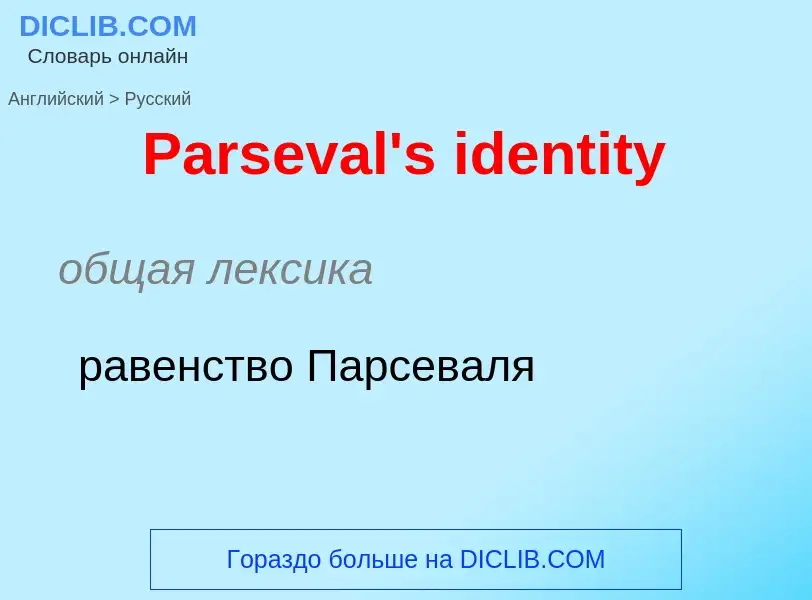Traducción y análisis de palabras por inteligencia artificial ChatGPT
En esta página puede obtener un análisis detallado de una palabra o frase, producido utilizando la mejor tecnología de inteligencia artificial hasta la fecha:
- cómo se usa la palabra
- frecuencia de uso
- se utiliza con más frecuencia en el habla oral o escrita
- opciones de traducción
- ejemplos de uso (varias frases con traducción)
- etimología
Parseval's identity - traducción al ruso
общая лексика
равенство Парсеваля
['seimnis]
общая лексика
сходство
тождество
существительное
общая лексика
сходство
подобие
одинаковость
единообразие
тождество
однообразие
монотонность
одинаковость, сходство, единообразие
Definición
Wikipedia
In mathematical analysis, Parseval's identity, named after Marc-Antoine Parseval, is a fundamental result on the summability of the Fourier series of a function. Geometrically, it is a generalized Pythagorean theorem for inner-product spaces (which can have an uncountable infinity of basis vectors).
Informally, the identity asserts that the sum of squares of the Fourier coefficients of a function is equal to the integral of the square of the function,
where the Fourier coefficients of are given byMore formally, the result holds as stated provided is a square-integrable function or, more generally, in Lp space A similar result is the Plancherel theorem, which asserts that the integral of the square of the Fourier transform of a function is equal to the integral of the square of the function itself. In one-dimension, for
Another similar identity is a one which gives the integral of the fourth power of the function in terms of its Fourier coefficients given has a finite-length discrete Fourier transform with number of coefficients .
if the identity is simplified to
